Learn how functional wellness during menopause can support your journey through this life stage and promote lasting well-being. Navigating Menopause with Functional Wellness: A Holistic…


Learn how functional wellness during menopause can support your journey through this life stage and promote lasting well-being. Navigating Menopause with Functional Wellness: A Holistic…

Unlock the mysteries of perimenopause and gain valuable knowledge to manage your health during this transition. Introduction Regarding one’s health and well-being, many people often…

Can hormone replacement therapy provide relief by replenishing lost hormones in menopausal women and in men to restore their body function? Introduction Hormones help regulate…

Before the body can benefit from consumed nutrients, the gastrointestinal tract has to digest and absorb the foods. Before eating, the body needs to feel…

Introduction When it comes to our bodies, many functioning systems help the body regulate its temperature, provide mobility and stability when in motion, and protect…
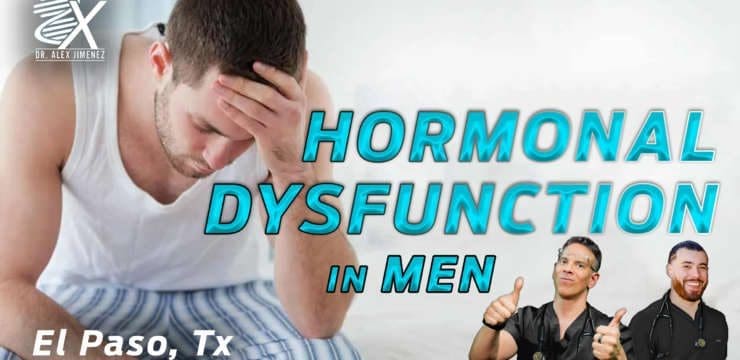
Introduction Dr. Alex Jimenez, D.C., presents how to look for signs of hormonal imbalances in men and how different treatment strategies, like chiropractic care, can…
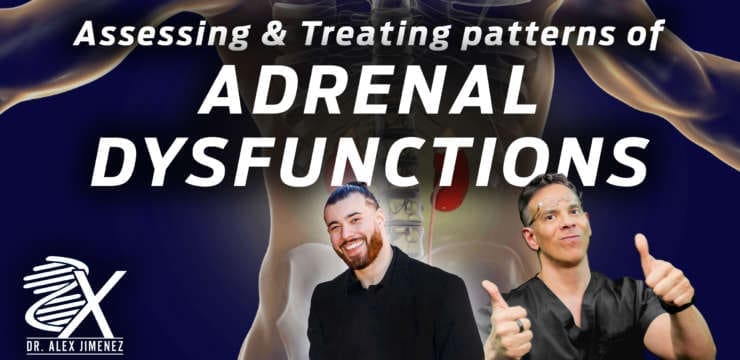
Introduction Dr. Alex Jimenez, D.C., presents how various treatments can help with adrenal insufficiency and can help regulate hormone levels in the body in this…
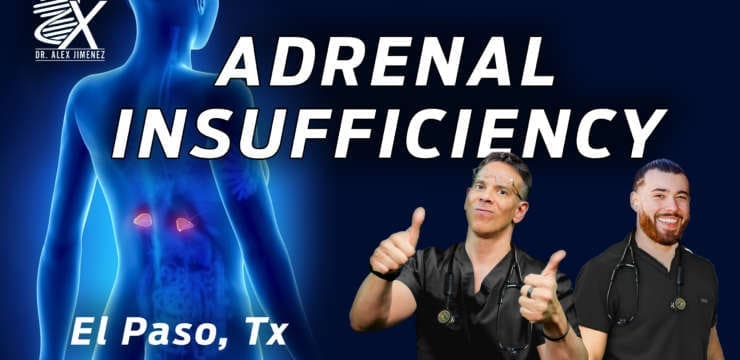
Introduction Dr. Alex Jimenez, D.C., presents how adrenal insufficiencies can affect the hormone levels in the body. Hormones play a vital part in regulating body…
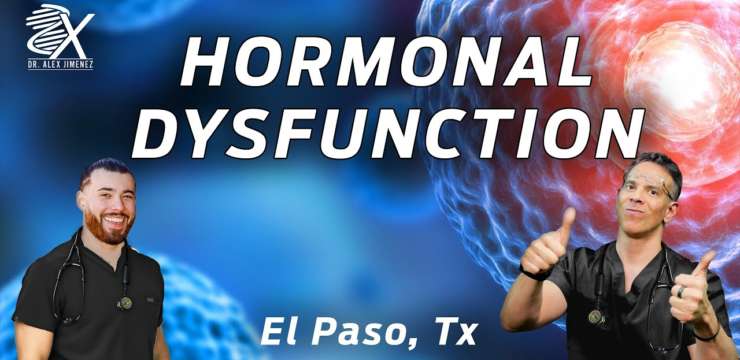
Introduction Dr. Alex Jimenez, D.C., presents an insightful overview of how hormonal dysfunction can affect the body, increase cortisol levels, and be associated with PTSD…

Introduction Dr. Alex Jimenez, D.C., presents an overview of hormonal dysfunction can affect the various hormones in the body that can increase cortisol levels in…

Dr. Alex Jimenez, D.C., presents how hormonal dysfunction can be assessed and treated through various therapies specializing in hormones and how to regulate them in…
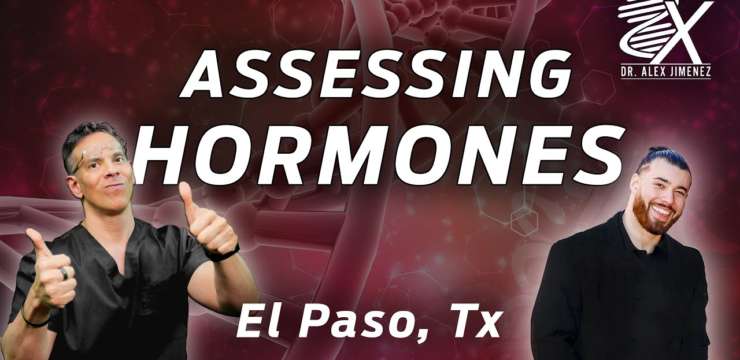
Dr. Alex Jimenez, D.C., presents how to assess different hormones in the body and how different hormone tests can be used to determine the level…

Introduction The body is a functional being with the brain to control the host’s movements when going to places or resting, the immune system to battle viruses that enter…

Introduction As we know, hormones in the body can help individuals function throughout the day. Since they are secreted in the endocrine system and for…

Introduction When the body is functioning properly, it is due to the hormones working on each organ and body system for individuals to achieve overall…

Hormones are mainly thought of in regards to menstrual cycles, puberty, carrying a baby, and sex drive. However, in reality, hormones are much more than that. Hormones create a delicate balance in homeostasis and with too little or excess, many problems arise.Â
There are different types of hormones in the body. The most commonly referred to hormones are sex hormones. These include Estrogen (estrone, estradiol, and estriol), progesterone (differentiation), testosterone, and DHEA. Estrogens primary role is growth. When evaluating estrogen, practitioners take into account the Estrogen Quotient. This is used by dividing the sum of estrogen plus estradiol. The lower the estrogen quotient, the higher the risk of breast cancer. Â
Progesterone helps the cells become what they were meant to be and how to function the way they are intended to function. Progesterone is critical as it promotes healthy sleep patterns, improves insulin resistance, burns fat for energy, is an antidepressant, and is the primary hormone in pregnancy. Although progesterone has many benefits, too much of a good thing has repercussions. Too much progesterone turns into estrogen dominance (seen in reproductive years, PMS, and menopause). Elevated levels of progesterone manifest in symptoms such as anxiety, irregular periods, mood swings, breast cancer, postpartum depression, weight gain, heavy periods, food cravings, and headaches.Â
DHEA is secreted by the adrenal glands. This is a prohormone for testosterone and estradiol. DHEA increases with age and can be elevated in women who have insulin resistance. The primary roles are libido, motivation and wellbeing, improves immune function, REM sleep, and memory.
Diagnostic Testing
It is clear that these hormones are essential and their balance is crucial. In order to determine if individuals’ hormones are off-balance, the clinic uses the DUTCH PLUS test from DUTCH. This test is a urine and saliva sample that is collected throughout a 24-hour time frame, allowing us to track hormone and cortisol levels. A sample report is shown below:Â
Â
Phase Angle
Phase angle is how health care professionals can monitor the integrity of cellular membranes. If the phase angle begins to decline, it has been linked directly to a decline in overall health. Similar to if phase angle increases, overall health is increasing. The integrity of cellular membranes is essential as cell survival depends on solid membranes. When the cellular wall is weak, it can collapse. From here, it is difficult for the body to take up the proper nutrients it needs. Additionally, with a weak cellular membrane, the cell is left with little to no protection from outside invaders. Stress impacts phase angle by causing individuals to gain weight and decreasing overall health.
We monitor a patient’s phase angle with the use of the InBody 770. This advanced machine allows us to not only track the phase angle of our patients but many other areas of their health as well, including but not limited to intracellular and extracellular water.Â
[embedyt] www.youtube.com/watch?v=WwbIsPNUYqs%5B/embedyt%5D
Phase Angle can decline if the hormone levels are not accurate. For example, if an individual is estrogen dominant, they will have irritability, mood swings, risk of blood clots, weight gain, food cravings, etc. Weight gain and food cravings (leading to more weight gain) cause the phase angle to decrease.Â
HORMONES ARE A MUCH LARGER UMBRELLA THAN MANY REALIZE. THEY ARE CRITICAL TO SO MUCH MORE THAN A MENSTRUAL CYCLE AND PUBERTY. THE LACK OF PROPER HORMONES CAN BE MORE DEBILITATING THAN INDIVIDUALS REALIZE. A GREAT WAY TO COMBAT YOUR HORMONES AND HELP PROTECT YOUR PHASE ANGLE IS TO PRACTICE GOOD SLEEP HYGIENE, EAT PROPER NUTRIENTS, REGULAR EXERCISE, AND MEDITATION. -KENNA VAUGHN, ACSM-EP SENIOR HEALTH COACH
References:Â
Hiller-Sturmhöfel S, Bartke A. The endocrine system: an overview. Alcohol Health Res World. 1998;22(3):153-64. PMID: 15706790; PMCID: PMC6761896.Â
Dr Lylen Ferris. “Moodiness, Madness, or Menopause.†Funcitonal Medicine University (FMU).Â
Additional Online Links & Resources (Available 24/7)


Â
Online Appointments or Consultations:  https://bit.ly/Book-Online-Appointment


Â
Online Physical Injury / Accident Intake Form: bit.ly/Fill-Out-Your-Online-History


Â
Online Functional Medicine Assessment: bit.ly/functionmed
Â
Â
Â
Disclaimer
Â
The information herein is not intended to replace a one-on-one relationship with a qualified health care professional, licensed physician, and is not medical advice. We encourage you to make your own health care decisions based on your research and partnership with a qualified health care professional. Our information scope is limited to chiropractic, musculoskeletal, physical medicines, wellness, sensitive health issues, functional medicine articles, topics, and discussions. We provide and present clinical collaboration with specialists from a wide array of disciplines. Each specialist is governed by their professional scope of practice and their jurisdiction of licensure. We use functional health & wellness protocols to treat and support care for the musculoskeletal system’s injuries or disorders. Our videos, posts, topics, subjects, and insights cover clinical matters, issues, and topics that relate and support, directly or indirectly, our clinical scope of practice.* Our office has made a reasonable attempt to provide supportive citations and has identified the relevant research study or studies supporting our posts. We provide copies of supporting research studies available to regulatory boards and the public upon request. We understand that we cover matters that require an additional explanation of how it may assist in a particular care plan or treatment protocol; therefore, to further discuss the subject matter above, please feel free to ask Dr. Alex Jimenez or contact us at 915-850-0900.  Read More…
Dr. Alex Jimenez DC, MSACP, CCST, IFMCP*, CIFM*, CTG*
email: coach@elpasofunctionalmedicine.com
phone: 915-850-0900
Licensed in Texas & New Mexico
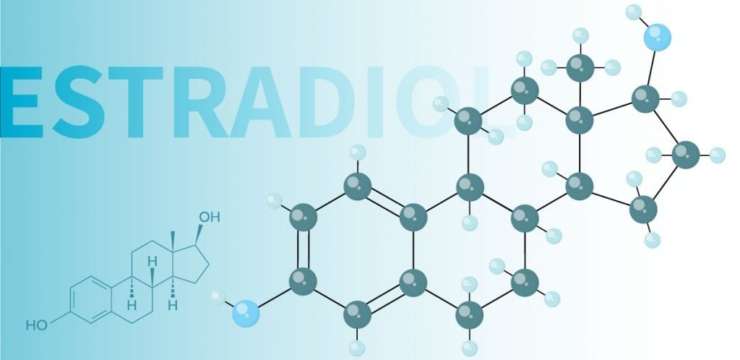
If we take a look at breast cancer, there are common roads that everything links back to. Those roads are an increase in estrogen or activation of the estrogen receptor in the mammary epithelial cell. This is important because there are triggers in our lives that have estrogen or stimulate estrogen production, ultimately leading to an increased risk of developing breast cancer.Â
FactorsÂ
Environmental factors like pollutants and stress are highly associated with breast cancer. For example, the pollutant xenoestrogen has estrogen-like activity. From here, when women age and move towards menopause, they produce more estrogen. When there is a relative increase in natural estrogen plus the pollutants sending the body false signals, we see a relative increase in estrogen and stimulation through the estrogen receptors in the body. A great way to decrease these pollutants and fake hormones is to switch to all-natural products. These fake hormones are being stored in products like:
Aluminum deodorantÂ
Body wash
ShampooÂ
Laundry detergentÂ
Air freshenersÂ
And moreÂ
The other factor mentioned above is stress. The stress that is being referred to in this instance is emotional stress. The type of stress we do not have as much control over (aka physical). The reason we take a look at stress is that stress leads to more cortisol being released throughout the body. More stress can lead to less melatonin production. Consider the fact that those with breast cancer have a decrease in melatonin. Over time, a decrease in melatonin results in an upregulation of estrogen receptors, leading to an increase in estrogen. Ways to help reduce stress include:
MeditationÂ
ExerciseÂ
GroundingÂ
Deep breathing techniquesÂ
DNA
As we have learned over the years, the DNA we are born with is not the DNA we die with. Yes, we are given a specific set of genes when we are born but our environmental factors have been proven to alter the expression of these genes. When we have a highly oxidized reactive molecule, it can adduct with DNA. This ultimately leads to DNA adduct formation that clips portions of our DNA out causing a mutation. Over time, with enough mutations, we can see patients develop cancer and their immune system is unable to fight it off as it no longer works properly.Â